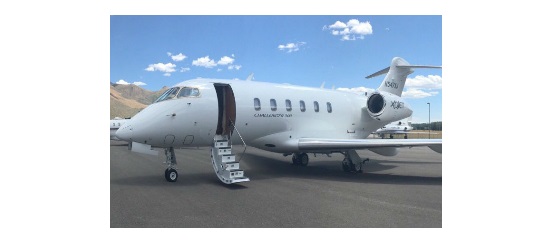Brexit: “It is not chaos, it is complicated”

XOJET Challenger 300
BREXIT MEANS BREXIT
Mark Bisset – Clyde & Co.
Alan Cunningham – DLA Piper
Jeremy Robinson – Watson Farley & Williams
“It is not chaos, it is just complicated”. Eight words that sum up the panelists’ opinions of where the UK, Europe and the rest of the world stand as negotiations drag on.
Last year, the UK triggered Article 50 of the EU Treaty, setting course for country’s leaving from the European Union. It has been almost two years since a narrow majority of the country’s electors voted to leave, and we still have no real idea how it will affect the private aviation market. Thus, the panellists.
It took Canada 10 years to negotiate a mutually satisfactory trade deal with the EU, so expecting the same for Britain in the next few years is not realistic. A basic framework and a transition period will be the next step for the UK.
“The situation is not chaos… it is just complicated” said Mark Bisset.
A Brexit deal is officially scheduled to be finalised by October 2018. The chances of a fleshed-out plan for the aviation market aredoubtful. As Jeremy Robinson said: “All you are going to get by October will at best be only a little more enlightening than what we got last year. There is no certainty on the detail of the upcoming framework, and there will be no aviation deal whatsoever.”
Alan Cunningham believes that we will get no separate aviation deal in the Brexit negotiations. “It is likely to be lumped in with the free-trade arrangement. I think we will end up with a similar situation that we have got at the moment, but it will be more long-winded and tortuous.”
The question remains: How will this effect private aviation businesses? The panel recommends looking at how many of the Freedoms of the Air an operator takes advantage of to determine how the business will be affected.
The EU incorporates all of the Freedoms into its single aviation market. So, an operator is based in the UK could stand to lose some of the freedoms, depending, of course, what deals are drafted.
UK operators are already making moves to ensure they can operate in and out of the country. That applies, particularly to the low-cost airlines that are taking full use of cabotage rights.
The issue with business operators is that they cannot set up AOCs as easily as commercial carriers. Business-jet operators do not know where they will be flying, whereas commercial operators do. Cunningham suggests business operators would be ill-advised to follow in the footsteps of commercial LCCs.








